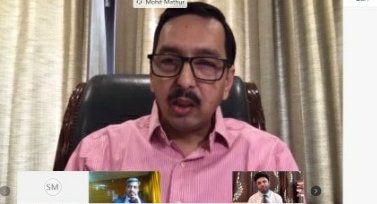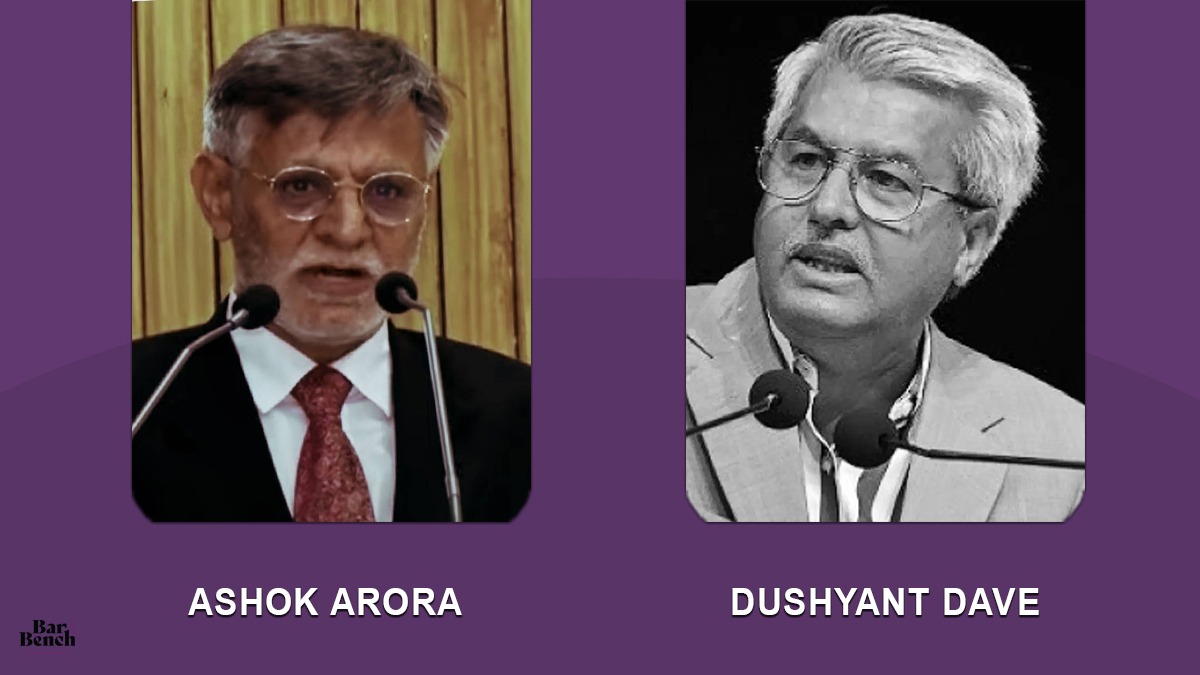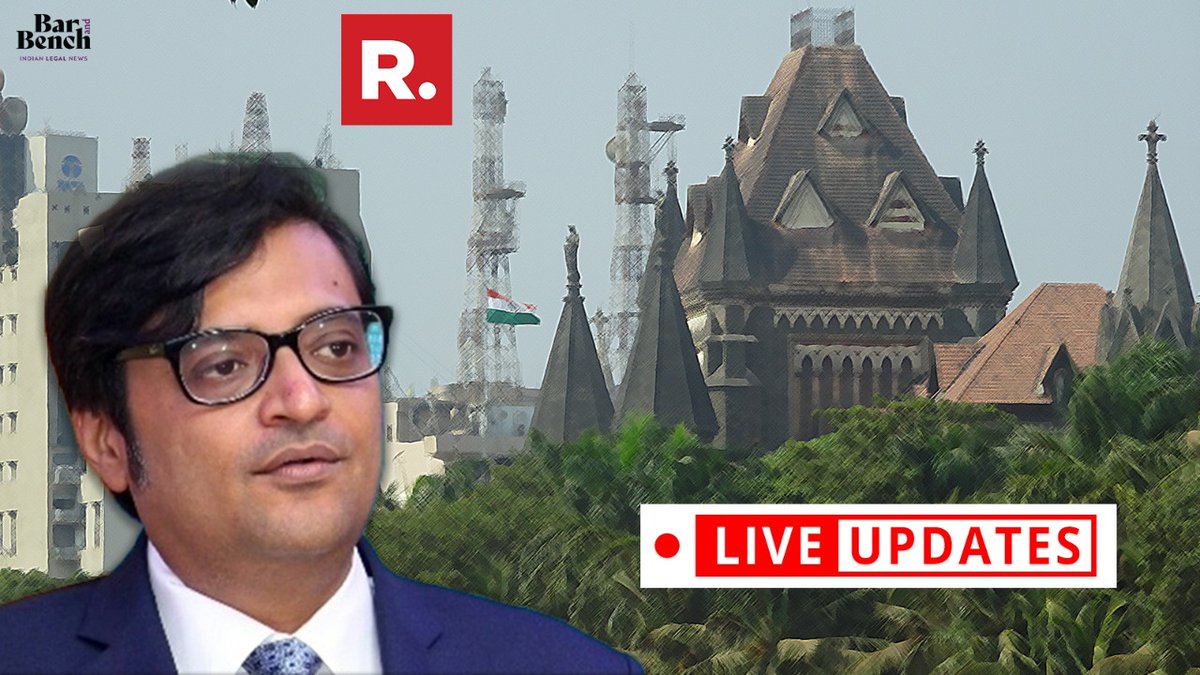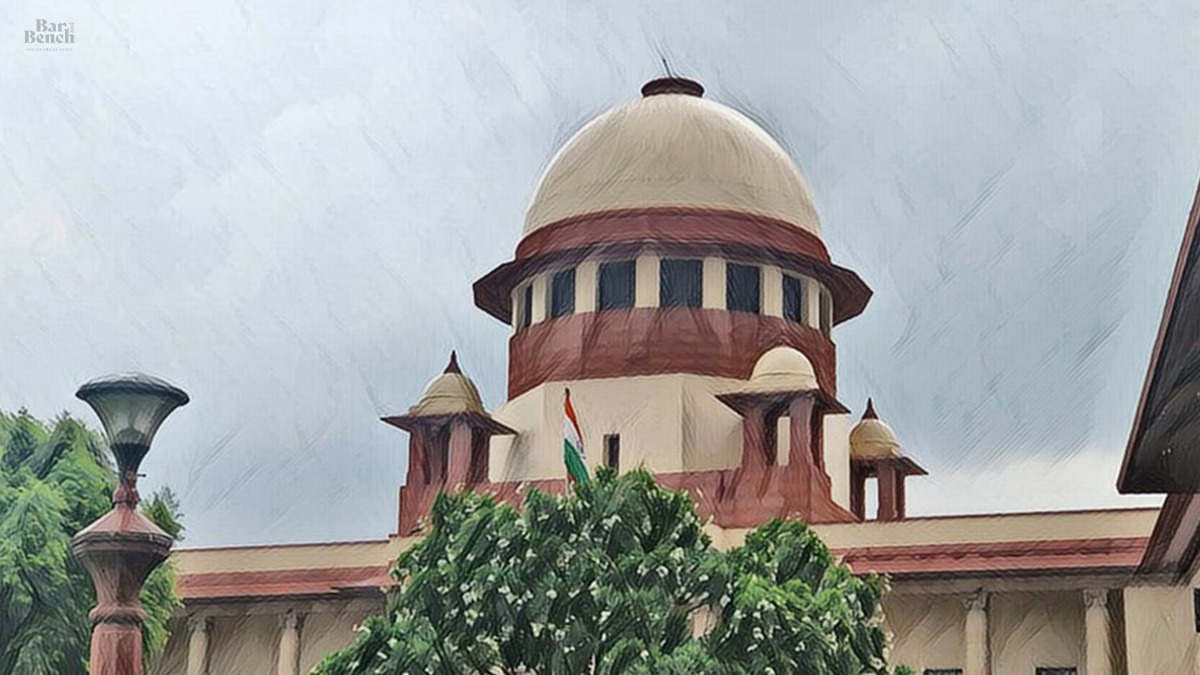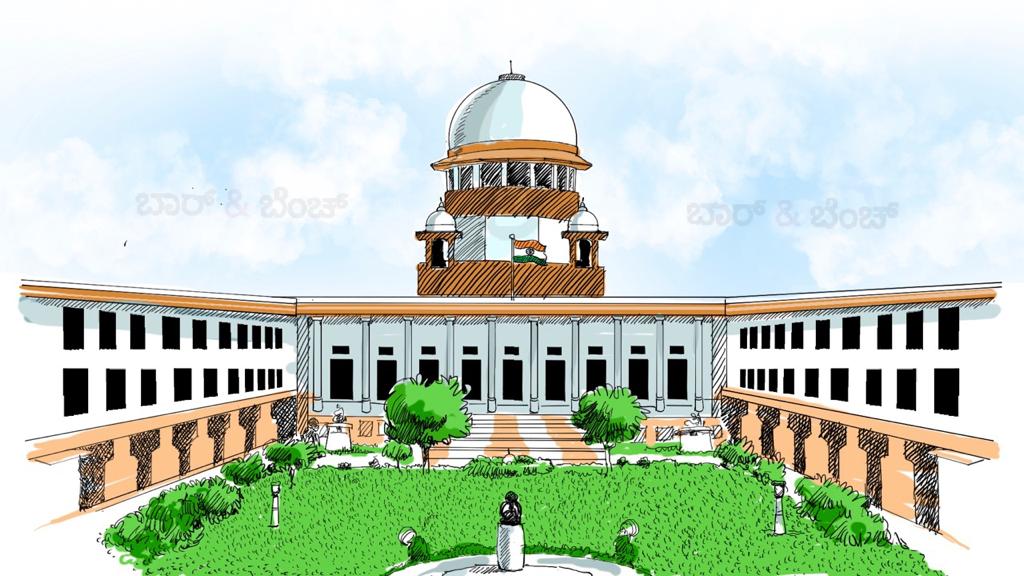
WEBINAR:
Webinar on "Career in Criminal Law Practice" organized by Jammu & Kashmir HC and J&K Judicial Academy will begin shortly now.
Senior Advocates Rebecca John, Siddharth Luthra and Mohit Mathur will be in conversation with Advocate Bharat Chugh.
@AdvBharatChugh
Webinar on "Career in Criminal Law Practice" organized by Jammu & Kashmir HC and J&K Judicial Academy will begin shortly now.
Senior Advocates Rebecca John, Siddharth Luthra and Mohit Mathur will be in conversation with Advocate Bharat Chugh.
@AdvBharatChugh

Session begins.
Chief Justice of the Jammu & Kashmir HC, Justice Gita Mittal, is chairing the session.
Chief Justice of the Jammu & Kashmir HC, Justice Gita Mittal, is chairing the session.
Moderator, Rajeev Gupta introduces the panelists - the three Senior Advocates as well as Advocate Bharat Chugh.
@AdvBharatChugh
@AdvBharatChugh
CJ Gita Mittal delivers a short introductory address, expresses her pleasure at J&K HC hosting this session for the benefit of the law students and law interns in Jammu & Kashmir "who unfortunately get no exposure at all". 

CJ Mittal says that while the session was held to facilitate an educational session for participants from Jammu & Kashmir, it makes her very happy to know that participants from across the country have joined the session.
Advocate Bharat Chugh begins the session, begins by asking the panelists to recall how their journey as criminal lawyers began.
Senior Advocate Rebecca John is the first to recount, says while starting out, she was often told "family law is better suited for women".
Senior Advocate Rebecca John is the first to recount, says while starting out, she was often told "family law is better suited for women".
John (remembering her time in chambers of Senior Advocate where she began her career): There is no substitute to learning your skill from your senior.
The hurry these young lawyers have diminishes your ability to internalize, process and absorb what you learn.
The hurry these young lawyers have diminishes your ability to internalize, process and absorb what you learn.
John (on how criminal litigation is perceived) : Criminal litigation exposes us to this conflict between an individual and the state, it is the last bastion of constitutional rights and the judgment that comes with practicing criminal litigation is unfair. 

Senior Counsel Siddharth Luthra reveals that he never wanted to be a lawyer and wanted to teach instead.
Luthra adds that he started practising criminal litigation around the time he lost his father and regrets not having worked with him.
Luthra adds that he started practising criminal litigation around the time he lost his father and regrets not having worked with him.
Luthra: I had the experience of different roles - defence counsel, prosecutor and even acted as a witness. But I believe you should start with civil law.
The way we are criminalizing human conduct, it is important to start from civil law. Start your foundation with pleadings.
The way we are criminalizing human conduct, it is important to start from civil law. Start your foundation with pleadings.

Luthra: It is important for youngsters to enjoy all their internships.
Post covid era has brought enough challenges, there are not many cases now. In the absence of adequate work, it is going to be a challenge.
Post covid era has brought enough challenges, there are not many cases now. In the absence of adequate work, it is going to be a challenge.
Luthra: As lawyers for defence, we represent causes which may seem unpalatable to a lot of people especially on primetime TV but ethics teaches us that we must do the job to the best of our ability.
Luthra: The other day, I appeared in the #HathrasCase and there was a lot of pushback even to allow me to be heard.
Luthra: when I was the special prosecutor in the #Nirbhaya case and when I asked for death penalty for the accused, I had sleepless nights. I went over the evidence over and over to be sure that what I was asking for was right because at the end of the day it is someone's life
Luthra: Criminal litigation can have the effect of making you very insensitive or sometimes very sensitive but it is surely very stressful.
Another thing is, we are not "criminal lawyers" but we are "lawyers who practice criminal litigation"
Another thing is, we are not "criminal lawyers" but we are "lawyers who practice criminal litigation"
Luthra (on options for students who are unsure of what they want to practise): If you are unsure, then during your time at law school, do a lot of internships.
My recommendation is, take the opportunities you get and each opportunity can be a learning experience.
My recommendation is, take the opportunities you get and each opportunity can be a learning experience.
Luthra: Turn every situation to your advantage of learning. Hone your skills, develop yourselves and everything is willing to teach you if you are willing to learn.
Senior Advocate Mohit Mathur says, like Luthra, he also did not want to be a lawyer and was an "accident in this profession".
Mathur fondly remembers that it was Rebecca John's college notes that helped him in entering the profession. John was working in the law office of Mathur's father, a leading Criminal Lawyer of the time.
Mathur: I had a chance of doing appellate work for all different areas and got the opportunity of seeing State laws, Constitutional laws etc.
The only advice my father gave me when he fell sick was that don't stick in HC but go back to Trial Court and work in different trials.
The only advice my father gave me when he fell sick was that don't stick in HC but go back to Trial Court and work in different trials.
Mathur: It is very important that you dirty your hands in the trial court and rub your shoulders with everyone rather than dream of the cushioned chairs and Air-conditioned rooms of the HC or SC.
You need to have a base without which your pyramid will topple.
You need to have a base without which your pyramid will topple.
Mathur: Once you understand what other areas of law practice are, then you can understand the aspects of criminal litigation better... your understanding of criminal law becomes better.
Mathur: Important attributes for criminal lawyers are to understand the pulse, presence of mind, not speak more than required and understanding what the judge expects to know.
Chugh to John: When young lawyers approach criminal practice, they have apprehensions about not being able to defend someone on moral grounds, how do they go about it and how do you deal with these situations? 

John: Nothing is untouchable. Cases come to us and the person in front of us is a human being. If anything criminal law teaches us humility.
What I learnt early on is, nobody is asking you to leave an immoral life but don't transpose your morality on other people.
What I learnt early on is, nobody is asking you to leave an immoral life but don't transpose your morality on other people.
John recalls the time when she appeared in the #Nirbhaya case towards the fag end.
John: I have a fundamental belief in due process. So a man or a woman condemned to death, every ground available to them must be exercised, even SC has said this.
John: I have a fundamental belief in due process. So a man or a woman condemned to death, every ground available to them must be exercised, even SC has said this.
John: Sometimes there are unpopular causes you espouse but there are reasons for which you espouse them.
The idea of sitting on a higher horse and passing judgments, let us leave it to TV studios, in real life, we are taught by our mentors to be compassionate.
The idea of sitting on a higher horse and passing judgments, let us leave it to TV studios, in real life, we are taught by our mentors to be compassionate.
John: I don't think I have ever had a moral dilemma in appearing in cases that others perceive as immoral. I believe that if a person is entitled to certain defences, they should be given. A robust defence must be given to every individual because that is a constitutional defence
John: There was a big debate in India when Ajmal Kasab had to be defended but our Constitutional provides that every accused is entitled to a defence regardless of what they may have done so the entire debate was a farcical and best suite for 9PM debates.
John (On stress that comes with the responsibility of defending an accused): It is surely stressful, but it is all part of the trade.
When we are dealing with life and liberty there is a great amount of responsibility on us.
When we are dealing with life and liberty there is a great amount of responsibility on us.
Chugh to Luthra: Sometimes young lawyers become emotionally involved with the causes of their clients they espouse. How do you suggest this can be dealt with?
Luthra: There is something my teacher had told me and I will tweak that a little, If you are 20 and you are not an idealist something is wrong. If you are 30 and not a realist then something is wrong.
Luthra: Your job is advocacy, do your job to the best of your ability.
If you want to determine the guilt or innocence of someone, then become a judge... or a primetime news anchor.
If you want to determine the guilt or innocence of someone, then become a judge... or a primetime news anchor.
Luthra (On tips for briefing lawyers or solicitors): The important thing is the ability to listen and work hard.
When you bring a brief to a senior lawyer, you bring it to exploit the experience the senior has gained over the years.
When you bring a brief to a senior lawyer, you bring it to exploit the experience the senior has gained over the years.
Luthra: The purpose to brief someone is you must be able to highlight the strong points and the fallacies.
I very much rely on my in house team to get research. Only because while law firms may give you general research, they may not give you specific points of research.
I very much rely on my in house team to get research. Only because while law firms may give you general research, they may not give you specific points of research.
Luthra: Read the textbooks. Online research is great but it is not always specific because you are relying on someone else's analysis, this may not be your analysis.
Luthra: The ability to go deeper in research, the ability to deep dive is what will set you apart.
Chugh to Mathur: There are more and more offences where there is reverse onus, or higher threshold for bail or doing away with mens rea. How do you think young lawyers can prepare for these changes and the direction that we are headed in.
Mathur (addresses the question of moral compunction first): There is an old saying, "never fall in love with a brief".
My father used to say that only criminal lawyers have a constitutional duty, others are all there to make money.
My father used to say that only criminal lawyers have a constitutional duty, others are all there to make money.
Mathur (on question of changes in criminal law): I'm personally comfortable if the changes are well deliberated and are not knee jerk reactions.
Mathur: You cannot have onus of a person proving his innocence.
I'm always reminded of media trial situations. One media channel ran a sting operation against a school teacher who was accused of trafficking school children.
I'm always reminded of media trial situations. One media channel ran a sting operation against a school teacher who was accused of trafficking school children.
Mathur: If you keep on passing the buck to the accused, how can the accused keep defending them on issues of mental state and others?
When you are transferring the onus on to the accused then the primary onus of the prosecution should be elevated to even higher level, I feel.
When you are transferring the onus on to the accused then the primary onus of the prosecution should be elevated to even higher level, I feel.
Mathur: Knee-jerk reactions that take place after one case, when committees are set up and then safeguards are lowered... When you reduce the safeguards, you are putting the citizens at risk.
Stigma attached with the offences are hard to break out of
Stigma attached with the offences are hard to break out of
Mathur: When you transfer the onus and remove the safeguards then you have to be very careful and the Courts need to make sure that the prosecuting agencies must be put to serious test.
Mathur: On criminal side, I feel you cannot do away with safeguards and they have to be very deeply thought out, not simply because the "candle light protesters" at India gate want them so.
Chugh asks the panelists about the things young lawyers can keep in mind while preparing the skill of cross examination.
Mathur: One senior used to always say that you must know what not to ask more than what to ask.
You need to marshall your facts and must know what your case is. You cannot build your case as you go along. You cannot take it in a cavalier fashion and you must master your facts
You need to marshall your facts and must know what your case is. You cannot build your case as you go along. You cannot take it in a cavalier fashion and you must master your facts
John: The one act which is ignored by lawyers but is critical is the Indian Evidence Act. Unless you know this Act, you cannot sharpen your skill. You must know what is admissible what is not and the objections etc.
John: Cross exam must be elegant.
I wonder why people don't like trial court practice, it is elegant. It is like building a story.
A good cross exam will give you the thrill that no appellate work will give you.
I wonder why people don't like trial court practice, it is elegant. It is like building a story.
A good cross exam will give you the thrill that no appellate work will give you.
John: The cleanness and elegance with which you do it is very important for the appellate lawyer to stand on.
The success of an appellate lawyer depends on the work you do as a trial lawyer.
The success of an appellate lawyer depends on the work you do as a trial lawyer.
John: Trial Court practice is the most magical part of criminal litigation.
Luthra: The difference between trial court practice and appellate practice is same as difference between an artist and a critic.
Luthra: The difference between trial court practice and appellate practice is same as difference between an artist and a critic.
Luthra: The line of cross examination questioning must be prepared.
Preparation and analysis are important.
And, give yourself time for contemplation. Spend time to think about what you will say. The human mind is finite and it requires time to analyse.
Preparation and analysis are important.
And, give yourself time for contemplation. Spend time to think about what you will say. The human mind is finite and it requires time to analyse.
Luthra: There are enough tools in CrPC and Evidence Act... but know those tools.
An amalgamation and comprehensive understanding of CrPC, Evidence Act and substantive laws is important and it all comes with Hard work.
Mathur: And to add, presence of mind.
An amalgamation and comprehensive understanding of CrPC, Evidence Act and substantive laws is important and it all comes with Hard work.
Mathur: And to add, presence of mind.
Chugh: Many students are asking, what is the right time to do Masters? How important is it from a criminal litigation point of view?
John: I haven't done my Masters, but I value any academic insights and the importance of it. When to do LLM is a matter of personal choice. Taking a break between practice is not easy and coming back to work is difficult. But these are all personal choices and decisions.
Luthra: I didn't do an LLM but did a Masters in Criminology and MPhil.
I concur with Rebecca that LLM is not essential for practice.
It's an asset but it is not a disadvantage to not have it.
I concur with Rebecca that LLM is not essential for practice.
It's an asset but it is not a disadvantage to not have it.
Q&A session is in progress
The session draws to a close.
Chief Justice Gita Mittal expresses her gratitude to the panelists for being a part of the session.
Chief Justice Gita Mittal expresses her gratitude to the panelists for being a part of the session.
• • •
Missing some Tweet in this thread? You can try to
force a refresh
